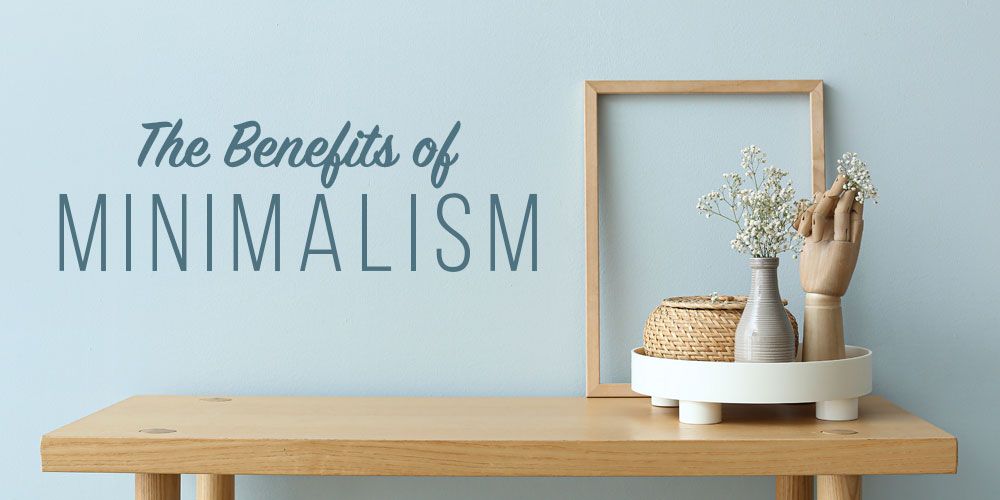

In a world filled with constant distractions and information overload, the concept of minimalism has gained significant traction as a means to achieve mental clarity and overall well-being. Let’s explore this topic in more detail with Tic Tac Toe below. The philosophy of “less is more” has become increasingly relevant in our fast-paced, consumer-driven society, offering a path to simplify our lives and focus on what truly matters.
Minimalism is more than just a design aesthetic or a trend in home decor; it’s a lifestyle philosophy that encourages individuals to identify and prioritize what’s essential in their lives while eliminating excess. This approach extends beyond material possessions to encompass various aspects of life, including relationships, commitments, and even digital consumption.
At its core, minimalism is about intentionality. It’s about making conscious choices about what we allow into our lives and what we choose to focus on. By reducing clutter and distractions, minimalism creates space – both physical and mental – for clarity, creativity, and personal growth.
One of the primary benefits of embracing minimalism is improved mental clarity. When we’re surrounded by less physical clutter, our minds are less likely to feel overwhelmed or scattered. This reduction in visual and mental noise allows us to think more clearly, make decisions more easily, and focus on what’s truly important.
Moreover, minimalism can lead to reduced stress and anxiety. The constant pressure to acquire more possessions, keep up with trends, or maintain a certain lifestyle can be a significant source of stress. By letting go of these external pressures and focusing on what brings genuine value and joy to our lives, we can experience a sense of freedom and relief.
Adopting a minimalist lifestyle doesn’t mean living in an empty apartment or getting rid of all your possessions. Instead, it’s about being intentional with what you choose to keep in your life. Here are some practical ways to incorporate minimalism into your daily routine:
Start by decluttering your living space. Go through your belongings and ask yourself if each item truly adds value to your life. If it doesn’t, consider donating, selling, or discarding it. This process can be challenging at first, but it becomes easier with practice. Remember, the goal is not to live with as few possessions as possible, but to surround yourself only with things that serve a purpose or bring you joy.
Pay special attention to your workspace, whether it’s a home office or a desk at work. A cluttered desk can lead to a cluttered mind, making it difficult to focus and be productive. Keep only essential items within reach and create a system for organizing papers and digital files.
In today’s digital age, minimalism extends to our online lives as well. Start by unsubscribing from unnecessary email newsletters, unfollowing social media accounts that don’t add value to your life, and organizing your digital files. Consider implementing a “digital detox” periodically, where you disconnect from devices and social media to focus on real-world experiences and relationships.
Minimalism isn’t just about physical possessions; it’s also about how you spend your time. Evaluate your commitments and activities. Are they all necessary? Do they align with your values and goals? Learn to say no to obligations that don’t serve you, and create space in your schedule for rest, reflection, and pursuing activities that truly matter to you.
Read more: The Science of Motivation: What Really Drives You?
As you begin to implement minimalist principles in your life, you’ll likely notice significant improvements in your mental clarity. Here’s how minimalism can positively impact your cognitive function and overall mental well-being:
One of the most immediate benefits of minimalism is a reduction in decision fatigue. When you have fewer possessions and commitments, you spend less mental energy on small, inconsequential decisions throughout the day. This frees up cognitive resources for more important tasks and decisions, leading to improved focus and productivity.
For example, having a streamlined wardrobe means spending less time deciding what to wear each morning. Similarly, a decluttered kitchen makes meal preparation simpler and more efficient. These small changes add up, leaving you with more mental energy for tasks that require deep thinking and creativity.
A minimalist environment, both physical and digital, can significantly enhance your ability to focus and concentrate. With fewer visual distractions in your surroundings, your mind is less likely to wander. This improved focus can lead to increased productivity, better problem-solving skills, and more efficient learning.
Many people find that working in a minimalist space helps them enter a state of flow more easily – that mental state where you’re fully immersed in a task and performing at your peak. By removing unnecessary stimuli, minimalism creates an environment conducive to deep work and sustained concentration.
Minimalism can have a profound impact on your emotional well-being. By letting go of the constant pursuit of material possessions and external validation, you create space for self-reflection and personal growth. This shift in focus from external to internal can lead to increased self-awareness, improved self-esteem, and a greater sense of contentment.
Moreover, the process of decluttering and simplifying your life can be therapeutic. Many people report feeling a sense of relief and lightness after letting go of excess possessions. This emotional unburdening can contribute to reduced anxiety and stress levels, leading to improved overall mental health.
Read more: How to Stay Focused When Life Gets Chaotic
While the benefits of minimalism are clear, transitioning to this lifestyle can present some challenges. It’s important to approach these obstacles with patience and understanding:
One of the biggest hurdles in decluttering is deciding what to do with sentimental items. These possessions often carry emotional weight and can be difficult to part with. Instead of feeling pressured to get rid of everything, consider keeping a select few items that truly hold significant memories. For other sentimental items, consider taking photos or finding creative ways to preserve the memory without keeping the physical object.
In a society that constantly bombards us with advertisements and encourages consumption, resisting the urge to buy can be challenging. Developing a minimalist mindset requires a shift in how you view possessions and consumption. Focus on experiences rather than things, and when you do make purchases, prioritize quality over quantity. Before buying something new, ask yourself if it truly adds value to your life or if it’s just a temporary fix for a deeper need.
Once you’ve decluttered and simplified your life, the challenge becomes maintaining this lifestyle. It’s easy to fall back into old habits of accumulation. Regular reassessment of your possessions and commitments is key. Set aside time periodically to go through your belongings and reevaluate your schedule. This ongoing process of refinement helps ensure that minimalism remains a sustainable, long-term lifestyle choice.
As you continue on your minimalist journey, remember that it’s not about achieving perfection. The goal is to create a life that aligns with your values and priorities, not to adhere to a strict set of rules. Be flexible and adapt your approach to minimalism as your life circumstances change.
Minimalism offers a powerful tool for improving mental clarity and overall well-being in our increasingly complex world. By simplifying our physical environments, digital lives, and daily routines, we create space for what truly matters. This intentional approach to living allows us to focus our energy and attention on our goals, relationships, and personal growth.
The journey towards minimalism is deeply personal and looks different for everyone. For some, it might mean dramatically downsizing their possessions, while for others, it could involve subtle shifts in their consumption habits and daily routines. The key is to find a balance that works for you – one that allows you to enjoy the benefits of simplicity without feeling deprived.
As you embrace minimalism, you may find that your definition of success and happiness begins to shift. Instead of measuring your worth by your possessions or achievements, you might start to value experiences, relationships, and personal growth more highly. This shift in perspective can lead to a more fulfilling and meaningful life.
Moreover, the mental clarity gained through minimalism can have far-reaching effects on various aspects of your life. With a clearer mind, you may find it easier to set and pursue meaningful goals, make decisions that align with your values, and navigate life’s challenges with greater resilience and composure.
In conclusion, the philosophy of “less is more” offers a powerful antidote to the overwhelming complexity of modern life. By embracing minimalism, we can create space for mental clarity, reduce stress, and focus on what truly matters.